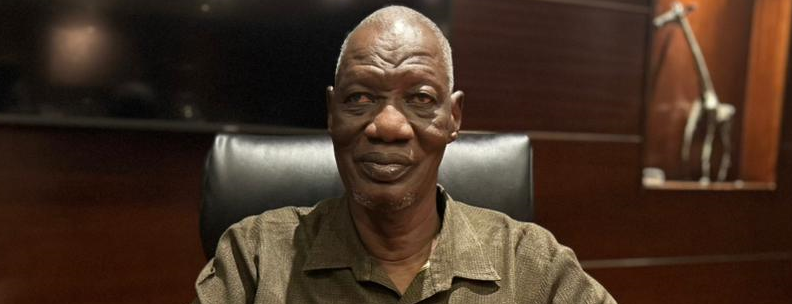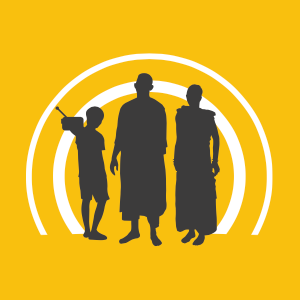Kuel Aguer Kuel, a former detainee and now key participant in the Nairobi peace talks, has called on President Salva Kiir and his deputy Riek Machar to step down and allow other individuals to build the country.
In the last part of an exclusive interview with Radio Tamazuj, Mr Kuel, a former governor of Northern Bahr el Ghazal State and a leading member of the rights movement People’s Coalition for Civil Action (PCCA), emphasized that the people of South Sudan deserve justice, democracy, equality, freedom and prosperity that they fought for.
Below are edited excerpts:
Q. Former governor Kuel, you seem to be in agreement with the SSOMA group, which is also calling for a dialogue to address the root causes of the conflict. Why do you think the government is hesitant?
A. The government is supposed to be the one to answer that question because what we need is an inclusive solution to all our problems. That is why we are recommending a roundtable so that we all present our problems and find solutions without having any personal interest.
When we look at the recommendations of the National Dialogue, there are some positive ones that the president is supposed to take seriously. He is supposed to take them in a responsible way, because they are the people’s suggestions.
One of the recommendations was that the president and his first vice-president should leave the political scene because they cannot work together. Alternatively, they should remain in their positions until the end of the transitional period then exit. However, all these beautiful recommendations were trashed.
The president is supposed to grant the people’s wish for an election and if they do not want him, they vote for someone else.
At the end of the transitional period, the president is supposed to be like any other South Sudanese citizen. If the people think he has not done well, they should not vote for him. However, if they think he still has something to offer, that is fine. Our president has fought for the country since he was 17. He has done enough, but if there is an issue with the administration of the country, he should think of other ways. He also needs to be served.
As South Sudanese citizens, we are ready to honor him and Riek Machar. We will respect them because they are part of our history. They fought for this country and led us to a referendum and the independence.
There are many good deeds attributable to him and we will always remember him, but we also need him to step aside and see how this country that he fought for, is being administered and developed. He should see the justice, democracy, equality, freedom and prosperity that he fought for, being put into practice. These are some of the principles of the SPLM that should be implemented in the New Sudan.
The president has to step aside and allow us to bring whoever is capable of fulfilling these principles. This is what we need from him and we need him to help us achieve that.
No one wants to intimidate him, but we do not want him to leave power when he is unwanted. We want him to be loved, respected and to propel the values of his sacrifices. However, for this country to move forward, a change would be appropriate.
Therefore, either he changes the way he is running the country, or he tells his party members to choose an alternative. All the solutions are in his hands. We can speak day and night and some might even fire bullets, but if the president is not involved, nothing will happen.
Q. What did you mean by your statement that those who fought for this country would not bring any solution to its current problems?
A. That is a normal scenario. When two people are fighting, you cannot tell them to look for a solution. Even if they go to court, you need a mediation to resolve the issues. You cannot allow them to implement the court’s verdict on their own, because they could still be having tensions.
When Paul Malong was brought from Yirol to Juba, he was locked with the president in the office. However, they could not offer any solution, because there was mutual mistrust.
People who have differences will never resolve any issues. They need someone to mediate the solutions.
Q. People have been curious about your PCCA. Why did you not register as a political party? Now, if everything goes well in Nairobi, how will you relate with the government?
A. We only need freedom for our members, who are still outside the country. I was the only one among the seven of our members, who appeared before a court of law. The cases against the rest are still pending. They should be granted a general amnesty to come back to the county, to play their roles to achieve peace and stability.
If a mechanic wants to use a car but the car is broken, it will not take him anywhere. Therefore, we want to play the role of mechanics, to repair our country and later on might join the government. For now, we do not think that the situation is conducive. We can make a decision in future, either as individuals or as a group.
Our main objectives now are stability, security and the transition to a democracy. We cannot do two things at the same time. We cannot be calling for peace, stability, security and democracy, and then join the same government. There will be a conflict of interest.
Q. If the ongoing talks do not bear fruits, will you go back to Juba?
A. I will go back to Juba. I have never thought of running to another country. You cannot be struggling to liberate your people then you run away. When you are demanding something within your country, you have a point. When you struggle from outside, you are like someone throwing stones at his own house. When you are in, people will know that you are fighting for the interest of the country.
If the talks take long, I can still return because I have other commitments at the University of Juba. I only took these two weeks because it is an exam period. Teaching at the university is my duty. Some of my colleagues can continue with the talks but I have to go back.
Q. Upon your meeting with the President at the airport, he said people were blaming him for not killing the anti-government elements. How did you feel about that?
A. The statement was out of anger. He was angry and unrealistic. The current president has NO constitutional right to apprehend and kill. Those encouraging him to do so, are just trying to put him into trouble. The president only has a right to sign a death sentence prescribed by a court of law. He does not have any authority to kill anyone.
Those who are calling for this are irresponsible and they want the president to get involved in crimes that would be preferred against him in the future.
If you look at the powers of the president in the constitution, there is no paragraph that talks about ordering the killing of anyone. He cannot issue an order to kill anyone.
I told the president that I am not fighting him on the frontline. I am just an ordinary citizen demanding the basic rights.
We keep on repeating to him that there are things that are not going well. If you still feel that you have the energy to continue, go ahead and fix those things, otherwise, allow us to choose someone else to take this country forward.
Q. Have you met the president since you were released?
A. No, I was blocked from meeting him. That is why when we met at the airport, he was bitter at me. He is supposed to give me an appointment so that I explain why we formed such an organization.
The president is a person I worked with. I was in charge of his campaign in 2010 together with the entire SPLM political wing. Yet I was not appointed to any position when they formed the government. And I did not complain. I did what I did, as it was my duty as the secretary-general of a political organization.
When I was only appointed the Governor of Northern Bahr al-Ghazal as an emergency. I was not even consulted. They decided to appoint Paul Malong in the military, and they needed a replacement. The two of them agreed to appoint me. I was not informed. Only Malong told me later.
Before I took the oath of office, the president told me that they should have consulted me and asked what I thought. I told him, Mr President, if someone is asked to go and serve his people, should he have any opinion? If there is any opinion, why should he be in politics?





 and then
and then